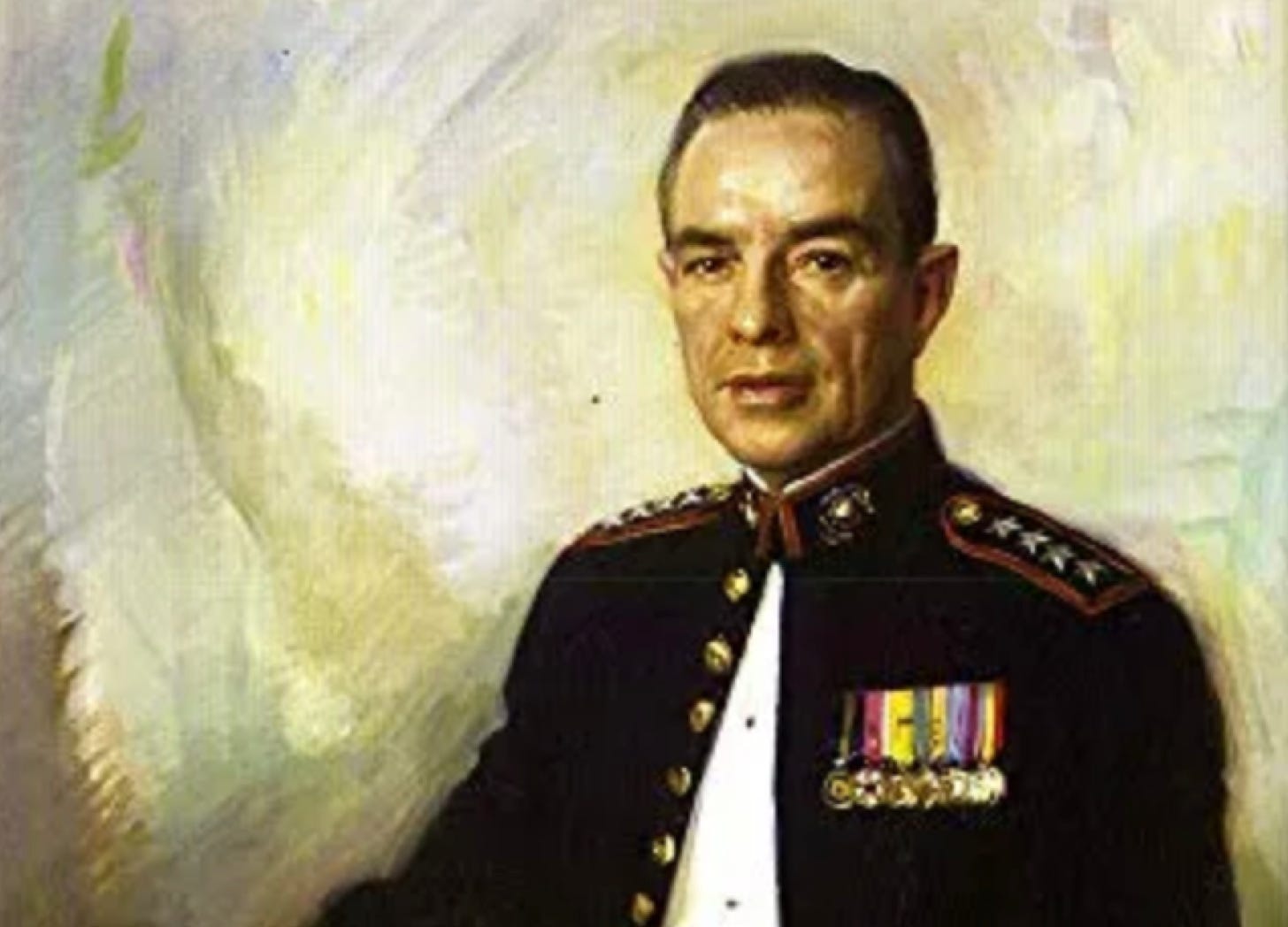Welcome to The Tactical Notebook, home for seven hundred sagas of the armies that are, the armies that were, and the armies that might have been. This post, the second in a decision-forcing case, asks readers to solve a thorny problem faced by the leader of an army in all but name, the United States Marine Corps. If you haven’t done so already, you will want to begin this exercise by engaging the first post in the series.
The family of Charles Whitman has yet to request either military honors at his funeral or burial in a national military cemetery. Thus, you have time to gather information.
The first thing that you do is ask your Director of Personnel for the service record book of the Marine in Question. As this is located in the Military Personal Records Center, in Saint Louis, Missouri, and fax machines have yet to come into general use, your senior manpower maven obtains, by telephone, the highlights of Whitman’s service and types them up in a memo.
The articles of the Uniform Code of Military Justice that Whitman was charged with violating are “failure to obey an order or regulation” (Article 92) and “conduct prejudicial to good order and discipline” (Article 134) tell you little about the details of the crimes in question. You therefore ask for additional information.
It turns out that Whitman was convicted of gambling, usury, possession of an illegal firearm, and threatening a fellow Marine in order to extract interest on a gambling debt. In other words, Whitman had been a loan shark preying on his fellow Marines.
You also learn that Whitman had suffered injuries while rescuing another Marine who had been trapped beneath a rolled-over jeep.
The director of personnel also tells you that the question of whether Whitman may be buried in a national military cemetery falls under the jurisdiction of the Memorial Division of the Army.
So, General Greene, having learned these things, what are your actions and orders?
If you would like to play an active part in this exercise, please use the comments section to describe the actions that General Greene should take in response to this situation. In doing so, please take care to refrain from “spoiling the story” with information about events that took place after 2 August 1966. (Please note that the Wikipedia article about Charles Whitman contains both spoilers and, where this matter is concerned, erroneous information.)
To Share, Support, or Subscribe:







The fact that whether or not he is buried at a National Cemetery is a question for the "Memorial Division of the Army" means the answer can be "no." Is it suspicious that his family isn't asking for a military funeral? Would they normally have done so by now?
So, to recap, Whitman was a loan shark while he was a Marine. If he continued on that path after he separated from the service, he could be liable to blackmail, especially if a former victim looked him up.
What were the injuries? Were they completely healed? Did they impact his ability to work? Was he on continuing pain medication for them? Okay, given this is in the middle of the Cold War, I can't shake the feeling that this is Communist psyop using Whitman, who probably went along with it because of blackmail, isolation from family, ideology. And whoever planned it made sure he died, which was probably also what he was hoping for himself. Going out in a blaze of glory.
So what does this mean for the Marine Corps? If Whitman gets full honors, it looks like the Marine Corps approves of mass shooters. If Whitman doesn't get full honors, it looks like once you're no longer a Marine, what you did before doesn't count. Meanwhile, are our Marines being targeted in this Cold War? How do we counter that?
I stand by my prior plan. 'Young man full of piss and vinegar behaves like a [insert preferred demotic Anglo-Saxon term here] once in 6 years' is not a story I expect I as the USMC's commandant would find especially surprising. I order the notes of the court-martial to be reviewed for irregularities but if his behaviour didn't reach the threshold for a dishonourable discharge then, it doesn't now.
We wait to hear from his next of kin and if they ask for military honours, we provide (most of) them. I order whatever press relations setup we have to say:
For now: "We're assessing the situation."
If the family don't ask: "We haven't received any such request from his family."
If they do: "His behaviour after discharge was disgraceful, but only to himself. We deplore his actions in later life but we're not disowning a man who, for all his faults, was one of us." Push this message where prospective recruits are likely to see it, given the wider mobilisation effort mentioned in the first part.